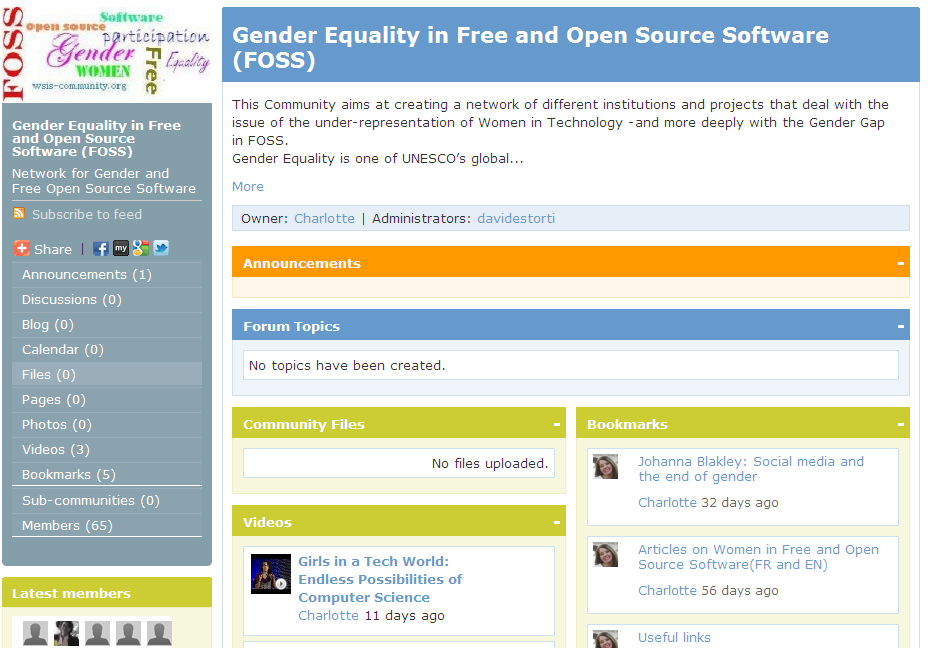Gender Equality in Free and Open Source Software

Scope and framework
Gender Equality is one of United Nations Educational, Scientific and Cultural Organization ’s global priorities, together with Africa. Within this framework, UNESCO seeks to promote women’s empowerment and to mainstream gender in all UNESCO policies, strategies and programs.
UNESCO’s believes that the Free and Open Source Software (FOSS) model provides interesting tools and processes with which women and men can create, exchange, share and exploit software and knowledge efficiently and effectively. FOSS can play an important role as a practical instrument for development as its free and open aspirations make it a natural component of development efforts in the context of the Millennium Development Goals (MDGs).
The Community “Gender equality in free and Open Source Software” aims at creating a network of different institutions, networks and actors that deal with the Gender Gap in FOSS.
Mandate
UNESCO, through the online Community on “Gender equality in Free and Open Source Software” aims to identify and measure the sociological and scientific reasons of this gap and find some possible solutions to these inequalities by looking at what challenges, either within or outside the FOSS community, prevent women (or men) from engaging with Free and Open Source Software or impede a full acknowledgement of their valuable contribution.
Activities
- Measuring the gender gap in FOSS: this goal could be reached by:
– creating appropriate statistical indicators (in collaboration with United Nations Educational, Scientific and Cultural Organization Institute for Statistics). To this end, we would start open (but moderated) discussions that would enable us to define the elements for the development of relevant indicators.
– piloting these indicators in the communities, either at national or regional (international) level
– scaling-up
- Policy guidelines, awareness raising, development of targeted programmes
Development of Indicators
Concerning the development of relevant indicators, the Community will be called upon to agreeing on some key definitions, such as:
- “FOSS Communities and their members”: there are different kinds of communities with different populations, functioning and needs – bearing in mind the need for limiting the scope within feasibility
- Identification of target groups: both the direct (users and developers) and indirect (policy/decision makers at different levels, as well as development partners) beneficiaries
Any stage of this work and relevant findings could be presented at different International forums dealing with gender issue in the FOSS, such as: Open World Forum 2011, FOSSASIA 2011, Open UNESCO Permanent Exhibition, IDLELO 2012 and during the celebrations of International Women’s day at UNESCO Headquarters.
How to join?
To join this online community and take part in the above-mentioned discussion, please send an email to: wsiscommunity-invitation@unesco.org
Link to the community page.
See also
- Gender Equality and Web 2.0
- Gender Differences and the Internet
- Access to internet and computers
- Can the Internet Make the World a Better Place?


